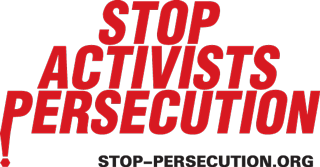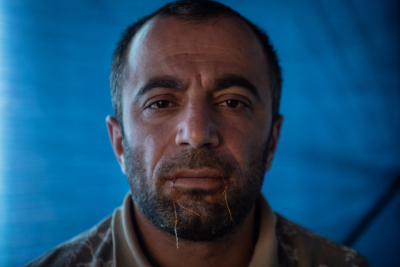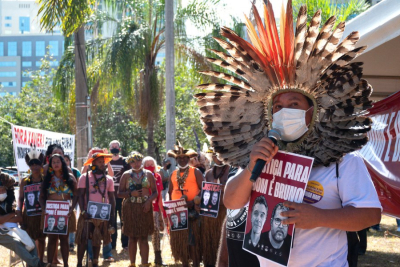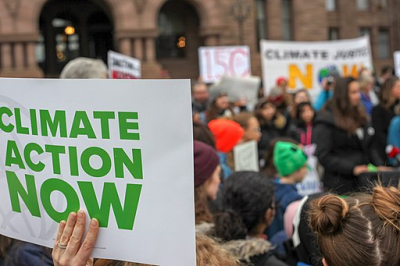The draft version of this law was previously withdrawn in May 2024 due to concerns about its compliance with European standards. Yet, the adopted version remains largely unchanged from its 2023 draft, aside from minor adjustments of legal deadlines. Critics argue that the law deliberately targets independent media and civil society groups, drastically shrinking civic space and silencing dissenting opinions. Its passage through an expedited legislative process, despite vocal opposition from domestic and international actors, signals a troubling shift toward authoritarian governance.
Scope and Impact of the Law
The “Foreign Agents” law compels non-profit organizations (NPOs) and independent media in Republika Srpska that receive funding from abroad to register as “Foreign Agents”. The law introduces an overly broad definition of what constitutes an NPO and foreign funding, capturing a wide range of entities, including those engaged in humanitarian work, human rights, consumer protection, women’s rights, sports, and cultural activities. Although not explicitly aimed at environmental organizations, the law’s sweeping language and harsh enforcement mechanisms pose serious risks to the entire civil society sector — including groups working on environmental protection and climate justice, who often rely on international support. In the current climate, many NPOs may self-censor or limit their advocacy efforts out of fear of reprisal.
All organizations receiving any amount of foreign financial assistance are required to register in a Special Registry maintained by the Ministry of Justice and to submit detailed reports to the Ministry, regardless of the sum involved — no minimum threshold is defined. This creates an onerous burden on organizations, especially smaller ones, and interferes with their day-to-day operations.
A key provision of the law prohibits registered NPOs from engaging in so-called “political activities”, defined vaguely as any actions aimed at influencing public opinion or government decision-making. This sweeping prohibition severely restricts freedom of association and expression and effectively bars civil society organizations from participating in democratic discourse and policy advocacy. The lack of clarity around what constitutes “political activities” introduces legal uncertainty and invites arbitrary application.
The law imposes additional reporting obligations that go beyond those required by the existing 2001 Law on Associations and Foundations. Organizations must disclose detailed information on all foreign donations, including the names of donors and the amounts, even for minor contributions. They are also required to label all their published materials with a “NPO” mark—effectively branding them as “Foreign Agents” which contributes to the stigmatization of independent civil society.
Moreover, NPOs are subject to enhanced legal oversight and inspections, with few safeguards to prevent abuse or politically motivated harassment. The competent inspection body has broad authority, yet the law fails to specify the types of documents or information that may be required, or the process for appeals. This lack of procedural clarity violates international standards of legal certainty and fairness.
The law prescribes a wide range of sanctions for non-compliance, including high financial penalties, suspension of operations, and potential criminal proceedings against an organization’s management. These sanctions are disproportionately harsh and may be applied even in cases of minor or unclear violations. The law also enables the government to ban the activities of NPOs altogether, posing an existential threat to civil society in Republika Srpska.
Notably, the law provides no effective remedies to challenge decisions made under its provisions, undermining the right to a fair trial and access to justice.
Organizations now face a stark choice: comply, self-censor, or risk financial and legal ruin. Independent associations are increasingly being shut out of policy discussions, further undermining democratic pluralism. Furthermore, this law threatens to delay Bosnia and Herzegovina’s EU accession process, isolate Republika Srpska economically, and discourage both domestic and foreign investment.
Legal and International Standards
The law undermines the right to freedom of association — a cornerstone of democratic societies that enables people to collectively promote public interest issues. The rights to freedom of association and expression are enshrined in Articles 19 and 22 of the International Covenant on Civil and Political Rights (ICCPR) and Articles 10 and 11 of the European Convention on Human Rights (ECHR). These rights include the ability of civil society actors to receive and use funding, including from international sources. The UN Declaration on Human Rights Defenders further reinforces this, emphasizing that access to resources is essential for human rights work. While these rights are not absolute, restrictions must meet strict standards of legality, necessity, and proportionality under international human rights law.
International bodies — including the UN Special Rapporteur on the rights to freedom of peaceful assembly and association — have warned against laws that stigmatize or criminalize NPOs based on their funding sources. They caution against burdensome registration, reporting, or audit requirements that inhibit autonomy or function.
The European Court of Human Rights has held that such laws must be clearly defined, non-discriminatory, and proportionate. The 2022 Ecodefence v. Russia judgment explicitly criticized vague definitions of “political activity,” similar to those found in the law adopted in Republika Srbska.
In light of these standards, the law raises serious concerns about legality, proportionality, and respect for core democratic freedoms.
Political context
The “Foreign Agents” law was passed under an urgent legislative procedure in February 2024, just days after the National Assembly of Republika Srpska adopted sweeping measures aimed at severing ties with state-level judicial institutions. This move is part of a long-standing campaign by RS President Milorad Dodik to challenge the constitutional order of Bosnia and Herzegovina (BiH).
Dodik, who is already under U.S. and U.K. sanctions for his secessionist rhetoric and actions, was recently convicted by the State Court of BiH for defying decisions issued by the High Representative, Christian Schmidt. In response, RS authorities accelerated the adoption of a series of controversial laws, including this law.
Timeline of key events:
- March 2023: The RS government introduces a draft version of the law.
- Throughout 2023: Widespread opposition from domestic civil society and the international community delays its adoption.
- May 2024: The initial version was withdrawn due to concerns about its compliance with European standards.
- February 28, 2025: The RS Assembly passes the law under expedited procedure.
- May 29, 2025: the Constitutional Court of Bosnia and Hercegovina annulled the law, stating that it violates the right to freedom of association. The jurisdiction of the Court has, however been defied by the RS authorities.
The law is broadly viewed as a direct transplant of Russia’s 2012 “Foreign Agents” legislation. Although Dodik has tried to frame it as similar to the U.S. Foreign Agents Registration Act (FARA), this comparison has been widely dismissed by legal experts and human rights organizations. Although itself problematic and prone to abuse, FARA narrowly targets lobbying activities on behalf of foreign principals, whereas the RS law restricts a wide range of civil society work and public discourse.
In parallel to this legislative move, aiming to silence dissent and intimidate critics of the government, local police raided the offices of Capital.ba, a prominent online media outlet, on the same day the law was adopted—an act that echoes similar tactics seen in neighbouring Serbia. The raid occurred amidst a broader context of suspended U.S. financial assistance and mounting regional tensions targeting independent media and civil society.
These actions seem part of a coordinated response to Dodik’s conviction, reflecting a broader pattern of escalating pressure on institutions that oppose leadership of Republika Srpska. This legislative push occurred amid an atmosphere of intimidation driven by top RS officials and escalated with a physical attack on journalists by a presidential advisor—an incident widely condemned by civil society across BiH.
Though the RS government claims the law aims to “enhance transparency” and curb political activity by NPOs, its timing and scope suggest otherwise. Introduced in direct response to Dodik’s legal issues and framed as protecting the “constitutional order,” the law targets groups and media previously labelled as “enemies,” serving more as a tool of retaliation and control than oversight.
Its expedited adoption signals declining democratic standards in RS, part of a wider crackdown involving defamation laws, media attacks, and power centralization. Collectively, these measures are fostering fear, suppressing civil society, and encouraging self-censorship.
Public and international reactions
The adoption of the “Foreign Agents” law in Republika Srpska has triggered widespread condemnation from domestic civil society organizations and international bodies alike.
A coalition of 41 local non-governmental organizations described the law as “a revenge attack on all critical voices,” asserting that it aims to suppress dissent, especially among independent media and civic groups. In a broader show of resistance, more than 100 civil society organizations across Bosnia and Herzegovina denounced the measure as authoritarian and repressive.
International responses have been equally firm. The United Nations criticized the legislation for undermining the independence and operations of CSOs, emphasizing that it does not comply with international human rights standards. Three UN independent experts also voiced concern, stating the law risks stigmatizing and criminalizing critical voices in RS.
The U.S. Embassy in Bosnia and Herzegovina warned that the law signals a dangerous turn toward authoritarianism and jeopardizes the democratic future of RS residents. Similarly, the European Union condemned the legislation, stating that it undermines Bosnia and Herzegovina’s constitutional framework, judicial independence, and EU accession commitments.
The Council of Europe Commissioner for Human Rights, Michael O’Flaherty, described the law as a “serious threat to freedom of association and expression.” He stressed that the legislation lacks legal clarity, foreseeability, and proportional safeguards. O’Flaherty also highlighted the vague criteria, burdensome reporting requirements, and harsh sanctions including potential bans and criminal proceedings that the law imposes on targeted organizations. He urged RS authorities to repeal the law and take into account previous expert recommendations.
The Organisation for Security and Cooperation in Europe (OSCE), the OSCE Office for Democratic Institutions and Human Rights (ODIHR), and the Council of Europe’s Venice Commission, through a joint opinion, all opposed the legislation. They expressed concerns about its incompatibility with international standards on freedom of association and expression. They noted that the rationale for the law is vague and unsubstantiated. As international law emphasizes, transparency alone is not a legitimate ground for limiting fundamental freedoms. The law fails to present a legitimate aim, such as the prevention of terrorism or money laundering, or a credible risk assessment justifying such sweeping restrictions.
Leading press freedom organizations have also voiced alarm. The International Press Institute (IPI) warned that the law will have a chilling effect on media freedom, particularly for investigative outlets like BUKA and Capital.ba, which rely heavily on foreign funding. Organisation ARTICLE 19 further emphasized that the law could isolate, stigmatize, and criminalize those who criticize the government, thereby severely shrinking the civic space in Republika Srpska.
Overall, both domestic and international observers view the “Foreign Agents” law not as a measure to increase transparency, as claimed by the RS government, but rather as a tool to intimidate and silence dissenting voices, further destabilizing democratic institutions in Bosnia and Herzegovina.
Concluding Remarks
Foreign agent laws adopted across Europe in recent years have negatively affected media freedom, placing excessive administrative burdens on independent media and civil society groups. These laws seek to control and reduce funding, stigmatize watchdog efforts, and in some cases, drive organizations into exile.
The new law in Republika Srpska aligns with a wider global trend. Since Russia’s 2012 “Foreign Agents” law, similar legislation has been introduced in Kyrgyzstan, Georgia, Hungary, Israel, and India—where restrictions under the Foreign Contribution (Regulation) Act have intensified. Serbia and Slovakia are also considering such laws. In Russia, the consequences were drastic: within two years, a third of independent NPOs had closed. As authoritarianism spreads, more governments are adopting these repressive strategies—an alarming trend requiring global attention.
Republika Srpska’s adoption of this law marks a serious violation of freedoms of association and expression. By imposing limitations on non-profits, especially independent media, the RS government is silencing dissent and undermining civil society. This threatens the region’s democratic integrity and breaches international human rights norms, calling for sustained global scrutiny and resistance.
Sources:
ENG, 17/12/2014, ODIHR and Venice Commission, CDL-AD(2014)046, Joint Guidelines on Freedom of Association, venice.coe.int;
ENG, 07/02/2025, Bosnia and Herzegovina: Bill on registering NGOs will increase government control over civil society operations, say UN experts, ohchr.org;
ENG, 28/02/2025, Bosnia and Herzegovina: The authorities of Republika Srpska should repeal the “foreign agent” law, coe.int;
ENG, 28/02/2025, Republika Srpska’s new NGO law raises serious concerns over human rights protection, OSCE Human Rights Director and Media Freedom Representative say, osce.org;
ENG, 19/06/2023, Bosnia and Herzegovina: Joint Opinion on the Draft Law of Republika Srpska on the Special Registry and Publicity of the Work of Non-Profit Organizations, osce.org;
ENG, 10/03/2025, Bosnia and Herzegovina: Do not enact Republika Srpska’s ‘foreign agent’ law, article19.org;
ENG, 19/09/2024, Foreign Agent Laws in the Authoritarian Playbook, hrw.org;
ENG, 06/03/2025, BCSDN Concerns Over the Adoption of the Foreign Agents Law in Republika Srpska: Deepening Repression on Civil Society, balkancsd.net;
ENG, 28/02/2025, BiH CSOs: The Laws Adopted by the National Assembly of Republika Srpska Represent a Revenge Attack on All Critical Voices, balkancsd.net;
ENG, 04/03/2025, EU Calls Republika Srpska Law On 'Foreign Agents' A 'Backward Step', rferl.org;
ENG, 21/09/2023, EU calls on Bosnian Serb parliament to reject draft law that brands NGOs as ‘foreign agents’, apnews.com;
ENG, 27/10/ 2023, Mandates of the Special Rapporteur on the promotion and protection of human rights and fundamental freedoms while countering terrorism; the Special Rapporteur on the rights to freedom of peaceful assembly and of association and the Special Rapporteur on the situation of human rights defenders, spcommreports.ohchr.org;
ENG, 28/02/2025, UN condemns adoption of ‘foreign agents’ law in Republika Srpska, n1info.ba;
ENG, 28/09/2023, With adoption of “Foreign Agents” Law RS sliding to authoritarianism, US Embassy warns, n1info.ba;
ENG, 04/03/2025, Bosnian Serbs adopt ‘foreign agent’ law targeting independent media, radiofree.org;
ENG, 04/03/2025, Bosnian Serbs adopt ‘foreign agent’ law targeting independent media, cpj.org;
ENG, 06/03/2025, Under Cover of Controversy, Bosnian Serbs Adopt ‘Foreign Agents’ Law, balkaninsight.com;
ENG, 19/04/2024, Foreign Agents’ Law Back on the Table: A lost battle or is there something still to be done for civil society in Republika Srpska?, balkancsd.net;
ENG, 24/03/2025, ‘The new foreign agents’ law isn’t about transparency – it’s about silencing dissent’, lens.civicus.org;
ENG, 26/02/2025, Bosnian Serb Leader Dodik Convicted of Defying International Official, balkaninsight.com;
ENG, 11/04/2024, Republika Srpska: Analysis of the "foreign agent" law, ecnl.org;
ENG, 05/03/2025, MFRR and SJN condemn adoption of foreign agent legislation in Bosnia’s entity Republika Srpska, europeanjournalists.org;
ENG, 10/02/2025, “Foreign Agents” Law Re-Announced in RS, media.ba;
ENG, 03/07/2024, Republika Srpska: The Georgian paradigm of Balkan foreign agents, article19.org;
ENG, 15/05/2024, EU must pressure to stop Foreign Agent Law in Republika Srpska, Bosnia and Herzegovina, kvinnatillkvinna.org;
ENG, 03/2025, 25 Years of Autocratization - Democracy Trumped?, v-dem.net;
ENG, 22/11/2023, OSCE co-organizes conference on "Civil Society and the Media: Critical Voices Under Pressure", osce.org;
ENG, 04/04/2024, Republika Srpska Moves Ahead With Proposed 'Foreign Agents' Law, rferl.org;
ENG, 02/02/2025, Republika Srpska to outlaw ‘foreign' support for NGOs, genocidewatch.com;
ENG, 17/04/2024, Authorities in Georgia & Republika Srpska must irrevocably withdraw legislation threatening to stifle independent civil society, hrc.ge;
ENG, 10/03/2023, U.S. Embassy statement on the proposed republika Srpska legislation, ba.usembassy.gov;
ENG, 10/04/2024, "Foreign agents" in the Serbian Republic of Bosnia and Herzegovina are defined, telegrafi.com;
ENG, 12/06/2023, OSCE/ODIHR, CDL-AD(2023)016 ODIHR-467/2023, JOINT OPINION ON THE DRAFT LAW OF REPUBLIKA SRPSKA ON THE SPECIAL REGISTRY AND PUBLICITY OF THE WORK OF NON-PROFIT ORGANISATIONS, osce.org;
ENG, 10/09/2023, Law on the Special Register and Publicity of the Work of Non-Profit Organizations of Republika Srpska, blchr.org;
ENG, 29/09/2023, What exactly is written in the so-called “Law on Foreign Agents”?, kucaljudskihprava.org
ENG, 29/05/2025, 158th Plenary Session – the course of the session so far, www.ustavnisud.ba
ENG, 29/05/2025, Bosnia’s Constitutional Court Scraps Serb Entity’s Disputed Laws, balkaninsight.com
ENG, 07/07/2025, Federal Court Lift Arrest Warrant for Bosnian Serb Leader Milorad Dodik, hungarianconservative.com




